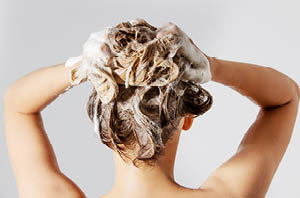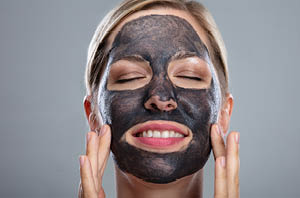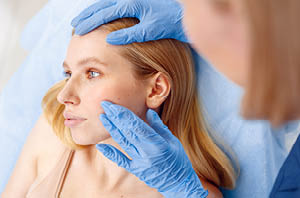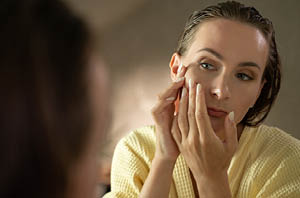Why Does My Skin Break Out in September?
As the summer fades and the crisp air, September arrives, and many people find themselves dealing with an unexpected skin issue: breakouts.
If you’ve noticed an increase in blemishes just as the leaves start to turn, you’re not alone.
In fact, “Why does my skin break out in September?” is one of the most common skincare-related searches on Google this time of year.
So, what’s causing these post-summer pimples, and how can you manage them? Let’s dive into the reasons behind fall breakouts and what you can do to keep your skin clear.
The Summer to Fall Transition: A Perfect Storm for Breakouts
During the summer, our skin tends to produce more oil. The combination of higher temperatures and humidity can cause sebaceous (oil) glands to work overtime, leading to an increase in oil flow. While this excess oil can give your skin a radiant glow in the summer, it also sets the stage for acne as the seasons change.
As September rolls around and temperatures begin to drop, your skin undergoes several changes:
- Increased Oil Production Continues: Even though the weather is cooling down, your skin may still be in “summer mode,” producing more oil than usual. This excess oil can mix with dead skin cells and become trapped in your pores, leading to breakouts.
- Dead Skin Cell Buildup: Cooler temperatures often mean drier air, which can cause the outer layer of your skin to become dehydrated. As a result, dead skin cells accumulate on the surface. These dead cells can clog pores, especially when combined with the lingering summer oil production, creating a perfect environment for acne.
- Trapped Bacteria: The combination of trapped oil and dead skin cells can lead to the proliferation of acne-causing bacteria beneath the skin’s surface. This bacteria, known as Propionibacterium acnes, thrives in clogged pores, leading to inflammation, redness, and breakouts.
The Role of Diet: Foods That May Trigger Acne
What you eat can have a significant impact on your skin’s health, especially during seasonal transitions.
Certain foods can contribute to breakouts, while others can help keep your skin clear:
Foods That May Cause Acne:
- Dairy Products: Milk and other dairy products can increase levels of certain hormones, which may contribute to acne.
- High-Glycemic Foods: Foods like white bread, sugary snacks, and processed foods can spike blood sugar levels, leading to increased oil production and breakouts.
- Greasy Foods: Consuming too much fried or oily food can lead to excess oil production, which can clog pores.
Foods That Can Help Clear Skin:
- Leafy Greens: Packed with vitamins and antioxidants, leafy greens like spinach and kale help reduce inflammation and detoxify the skin.
- Omega-3 Fatty Acids: Found in foods like salmon, walnuts, and flaxseeds, omega-3s help reduce inflammation and keep skin hydrated.
- Probiotics: Foods like yogurt, kefir, and sauerkraut support gut health, which can have a positive impact on your skin.
Garments That Help Prevent Acne

What you wear can also affect your skin’s condition. Tight, non-breathable clothing can trap sweat and oil against your skin, leading to breakouts. Here are some garment tips to help prevent acne:
- Breathable Fabrics: Opt for clothing made from natural, breathable materials like cotton or bamboo. These fabrics allow your skin to breathe and reduce the likelihood of clogged pores.
- Loose-Fitting Clothing: Wearing looser garments can help prevent friction and irritation on your skin, reducing the chances of developing acne in areas like your back, chest, and shoulders.
- Moisture-Wicking Materials: If you exercise regularly, choose workout gear made from moisture-wicking fabrics. These materials help keep sweat away from your skin, preventing acne caused by trapped moisture.
Does Shampoo Irritate Acne?

The products you use on your hair can also impact your skin. Certain shampoos, conditioners, and styling products can contribute to acne, especially if they contain heavy oils, silicones, or other pore-clogging ingredients. Here’s what to watch out for:
- Avoid Comedogenic Ingredients: Look for shampoos and conditioners labeled as “non-comedogenic” or “oil-free.” These products are less likely to clog pores and cause breakouts.
- Rinse Thoroughly: Make sure to rinse your hair products thoroughly to prevent residue from dripping onto your face, neck, or back, which can lead to breakouts in those areas.
- Keep Hair Off Your Face: If you have long hair, try to keep it off your face, especially if you use styling products. The oils and chemicals from these products can transfer to your skin and cause irritation or acne.
Tips for Managing September Breakouts
Now that we understand why your skin might be breaking out in September, let’s talk about how to manage it:

- Exfoliate Regularly: Since dead skin cells are a major culprit in fall breakouts, incorporating regular exfoliation into your skincare routine is essential. Use a gentle exfoliant 2-3 times a week to help remove dead skin cells and keep your pores clear.
- Hydrate, Hydrate, Hydrate: Even though the air is getting cooler, it’s crucial to keep your skin hydrated. Use a lightweight, non-comedogenic moisturizer to maintain your skin’s moisture balance without clogging pores.
- Switch to a Balancing Cleanser: If you’ve been using a heavy-duty cleanser to combat summer oil, consider switching to a more balancing option. A gentle cleanser with salicylic acid can help keep oil production in check while preventing clogged pores.
- Avoid Heavy Products: With the change in seasons, your skin may not need as heavy of products as it did in the summer. Switch to lighter formulas, especially when it comes to moisturizers and sunscreens.
- Keep Your Hands Off: It’s tempting to pick at your skin when breakouts occur, but this can lead to further irritation and even scarring. Try to keep your hands away from your face and let your skincare products do the work.
- Consider a Detox Mask: Incorporating a clay or charcoal mask once a week can help draw out impurities and reduce the buildup of oil and bacteria in your pores.
When to Seek Professional Help
If your breakouts persist or become severe, it may be time to consult with a dermatologist.

A medical skin care expert can offer treatments like chemical peels, prescription-strength topical solutions, or other therapies to help get your skin back on track.
Final Thoughts
September breakouts can be frustrating, especially after months of summer sunshine. However, by understanding the changes your skin is undergoing and adjusting your skincare routine accordingly, you can keep your skin clear and healthy as you transition into fall. Remember, your skin’s needs change with the seasons, and a little extra care now can prevent breakouts and keep your complexion glowing year-round.
If you’re struggling with seasonal acne or need personalized skincare advice, Stellis Health Medical Skin Care Center is here to help.
Our team of skincare professionals can guide you in creating a skincare routine tailored to your unique needs. Don’t let seasonal changes take a toll on your skin—schedule a consultation today!






